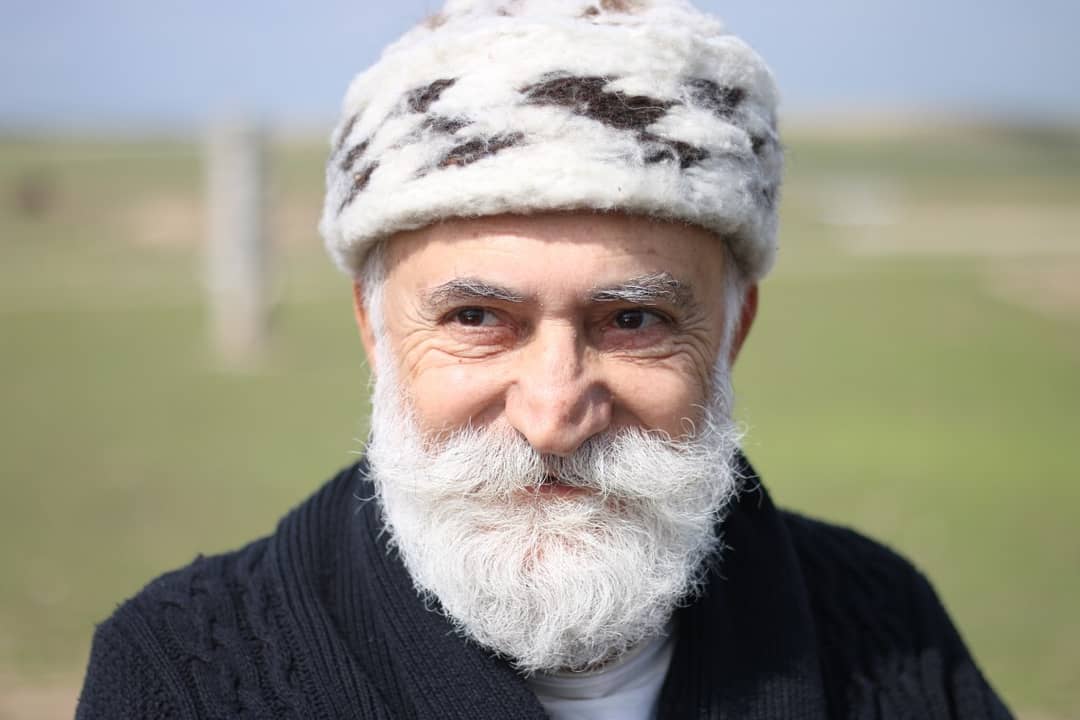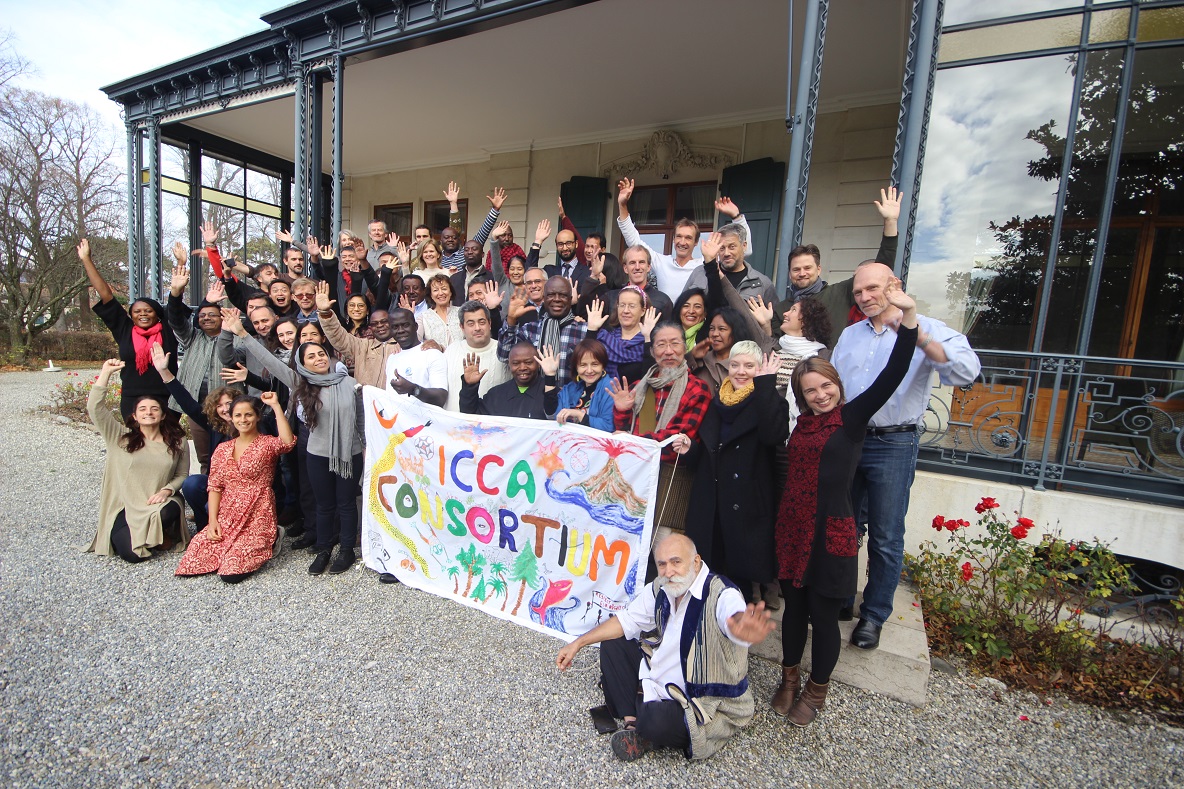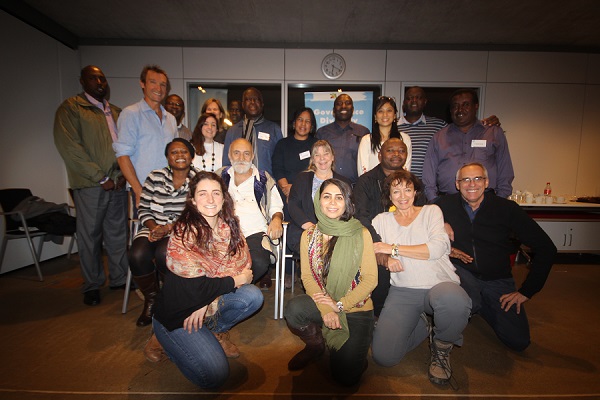Taghi Farvar – our collective memory
As many of you will now know, we are mourning the passing of our long-term friend and colleague, Taghi - Dr. Mohammed Taghi Farvar, who died on 16 July 2018. Most of those who know him are struggling even to contemplate a world without Taghi. Maybe we can best cope with this loss by continuing to regard him as being with us still; certainly his impact and presence will continue to be experienced by generations of conservation practitioners and indigenous peoples and local communities around the world.
Trevor Sandwith and Jenny Kelleher
There are many erudite commentaries on Taghi’s contributions and we have referred to some of these, and important links below. Permit us a moment of your time to allow us to reflect more personally on Taghi, and feel free to make your own contributions to the memorial page at the link below.
I (Trevor) first met Taghi in Amman, Jordan at the World Conservation Congress in 2000 when I worked for the Natal Parks Board in South Africa, a founder member of IUCN. The Commission for Economic, Environmental and Social Policy was experiencing some challenges at that time, and important meetings were convened by Taghi and colleagues to strengthen its mandate. I recall his unique combination of outrage, dissonance, persuasion, and sense of justice to follow him around that meeting. One of the products was the formation of TILCEPA (an inter-Commission Theme of Indigenous and Local Communities and Protected Areas) that was the driving force to include issues of governance into the forthcoming IUCN World Parks Congress 2003 that was, and continues to be the foundation of many of the principles that we now consider to be normative in the world of protected and conserved areas.
Fast forward to the two weeks I spent with him in Iran in 2016, where his authority, conviction, and leadership of a diverse team of young people, tribal elders and important officials allowed us to dig into the uncomfortable issues surrounding governance of nature in that part of the world. I have to confess, I had to climb up and stand on a rock high above our campsite to cool down after he fomented the most acrimonious exchange among participants I have witnessed. Yet a week later, he was back at my home, helping to celebrate friendship and solidarity among friends, while enquiring whether any creatures had been sacrificed in the preparation of the meal!
One of the most profound contributions he has made to my own understanding of conservation is to unpack the issues of “protected and conserved”. Whereas protection is a means to an end, Taghi understood that conserved was the conscious or unconscious result. He was uncompromising – although an indigenous people or local community could be venerated in its own right, it needed to establish its conservation credentials through the demonstration of the long-term conservation of nature, the defence of the commons, and the integrity of governance and tradition that enabled this. The Promise of Sydney embraced this, and Taghi came across to remark, and mark with a big hug, how important that moment of recognition was. For us in the Global Protected Areas Programme, the concepts of justice and equity in protected and conserved areas are among our top three issues – good governance is not only a means to an end, it is justifiably one of the most important outcomes of effective conservation. How we ensure that these ideas, and those of Taghi persist, is our own collective and personal responsibility; Taghi will remain our conscience and our critic.
As the IUCN obituary reads, Taghi dedicated his life to the recognition and support of Indigenous and Community Conserved Areas (ICCAs). Taghi did this across academic disciplines, several languages and cultures, but also at multiple levels from international fora down to the grassroots level. He was as at home articulating the texts of the IUCN Resolutions as he was discussing pastoralist practices at the local level, doing so with articulation, energy, a strong vision, and with ease.
His most recent work with the Global Protected Areas Programme was in the context of the Global Support Initiative for ICCAs, which saw him work and advocate tirelessly in several countries around the world. Memorable encounters during the course of that work included rich exchange in yurts in the mountain ranges of Eastern Kyrgyzstan and travelling to the Saphari or sacred forests in Georgia, to meet local people committed to conserving the natural beauty surrounding them, based on good governance entwined with rich traditions and heritage. Taghi never hesitated to get the most from every experience whether that was stopping to examine wildflowers, to enjoying the stories and food of our hosts, to seeking out and speaking to elders often sitting quietly in the background, and to learn from their perspective.
Taghi was a member of a Shahsevan indigenous tribe of nomadic pastoralists in Iranian Azerbaijan. He was an activist and a founding member of the ICCA Consortium. He chaired the Board of CENESTA (Centre for Sustainable Development) in Iran, he was a member of the Council of Elders of UNINOMAD, another ICCA Consortium member, and at the time of his death, was President of the ICCA Consortium.
Taghi was also very much part of IUCN, he was a member of the IUCN Council and held the Chair of the IUCN Commission on Environmental, Economic & Social Policy from 2000 to 2008. During that time, he was part of the group of pioneers who, at the 2003 Durban World Parks Congress, advocated for the recognition of the vital linkages between people and protected areas. He was resolute in his support of the implementation of the CBD decisions, IUCN Resolutions and the commitments and spirit that was articulated at the World Parks Congress “Promise of Sydney” in 2014. This called for a rebalancing of the relationship between human society and nature, and recognition that ecosystems and their variety of life can and should fully support people, their cultural and spiritual identities, economies and well-being.
Taghi was an established academic in both the natural and social sciences and contributed to numerous publications in that respect. He was Vice-Rector of Bu-Ali Sina University in Iran. But more than that, he combined a wealth of scientific knowledge with his traditional knowledge, bringing a unique perspective to nature conservation. He embodied diversity and supported the infusion of diversity into conservation practices and approaches.
We remember Taghi as a man of wisdom, great energy but also humility. He last visited the Global Protected Areas Programme at IUCN in Gland in November 2017, where he contributed with his usual passion to the recognition and promotion of ICCAs in Africa. His work and vision will continue to inspire the Global Protected Areas Programme and beyond.
For the memorial page on the website of the ICCA Consortium, please click here.






